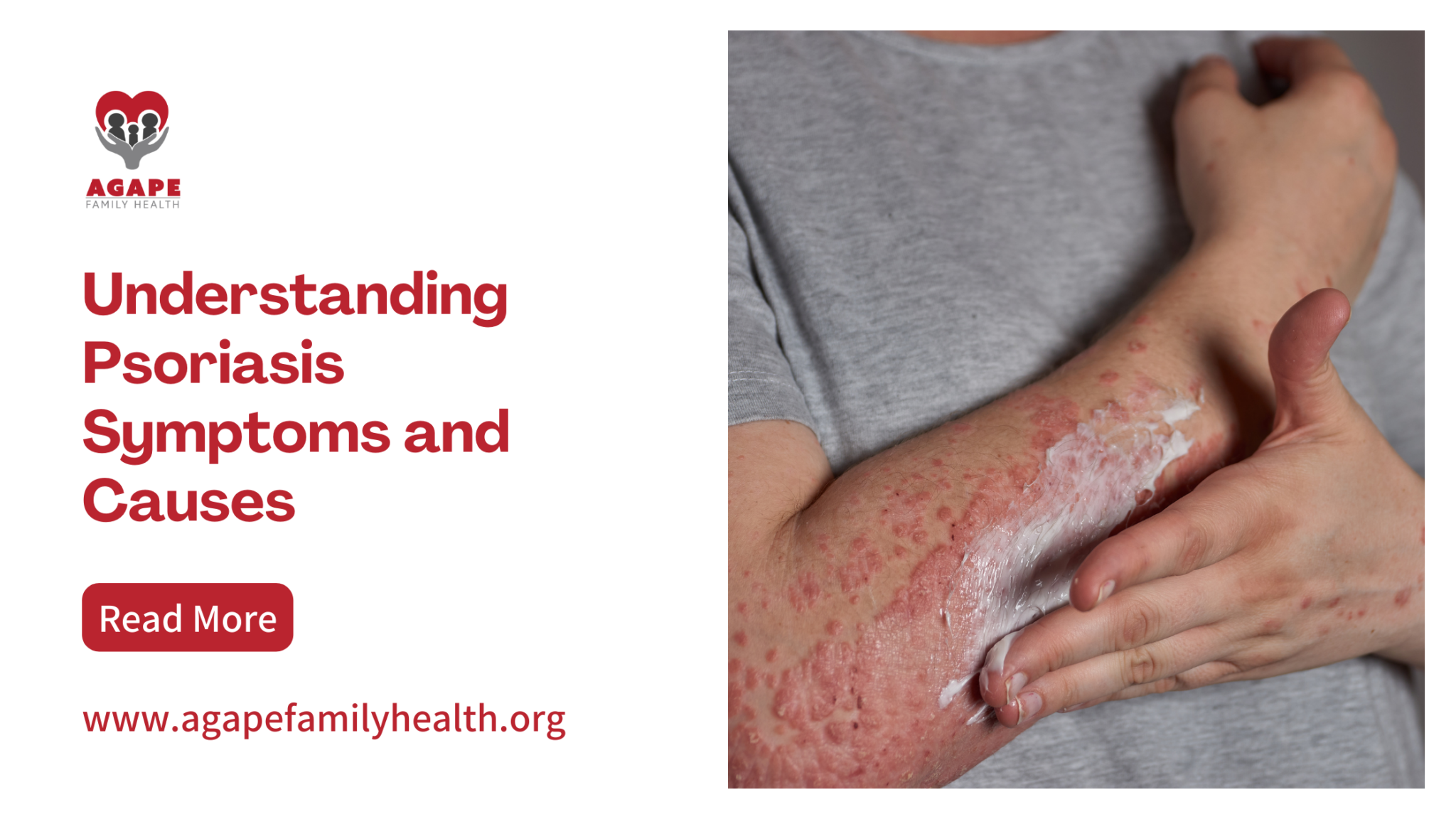Psoriasis is a chronic autoimmune condition that significantly impacts the skin and overall well-being of those affected. Although effective treatments and management strategies are available, many individuals still suffer due to a lack of understanding about the disease. Recognizing psoriasis symptoms and causes can empower individuals to seek appropriate care and improve their quality of life. By shedding light on this condition, we can move one step closer to finding comprehensive solutions for those living with psoriasis.
What is Psoriasis?
Psoriasis is a chronic, non-contagious skin disorder characterized by rapid skin cell turnover, leading to the buildup of cells on the skin’s surface. These excess cells form thick, red patches with silvery scales, which can be itchy, painful, and sometimes, debilitating. According to the Centers for Disease Control and Prevention (CDC), psoriasis affects approximately 2-3% of the global population, making it a common condition that warrants attention and understanding.
Symptoms of Psoriasis
The symptoms of psoriasis can vary greatly among individuals, both in appearance and severity. Recognizing these symptoms early can lead to better management and treatment outcomes. Here are the key symptoms of psoriasis, along with examples and detailed explanations.
Plaques
The most common symptom of psoriasis is the formation of red, raised patches of skin covered with silvery-white scales. These plaques can appear anywhere on the body but are most commonly found on the elbows, knees, scalp, and lower back.
- Example: John, a 35-year-old man, notices red, scaly patches developing on his elbows and knees. Over time, these patches become thick and covered with silvery scales, causing discomfort and embarrassment.
Itching and Burning
Psoriasis plaques can be intensely itchy and may cause a burning sensation. Scratching can lead to skin damage and worsening of the condition.
- Example: Sarah experiences severe itching and a burning sensation on the psoriasis plaques on her scalp. Despite her efforts to avoid scratching, the intense itchiness often leads to broken skin and increased irritation.
Dry and Cracked Skin
The rapid turnover of skin cells can cause the skin to become dry, cracked, and prone to bleeding. This can be particularly uncomfortable and can increase the risk of infection.
- Example: Michael, who has psoriasis on his hands and feet, finds that the affected areas often become dry and cracked, sometimes to the point of bleeding. This makes it painful to perform daily activities and increases the risk of infection.
Nail Changes
Psoriasis can affect the nails, causing them to become thickened, ridged, pitted, or discolored. Nail psoriasis can also lead to separation of the nail from the nail bed.
- Example: Emma notices that her nails have developed tiny pits and have become thicker than usual. Over time, some of her nails begin to lift away from the nail bed, making it difficult for her to manage her daily tasks without discomfort.
Joint Pain
Up to 30% of people with psoriasis develop psoriatic arthritis, which causes joint pain, stiffness, and swelling. Early diagnosis and treatment are crucial to prevent joint damage.
- Example: David, who has had psoriasis for several years, begins to experience joint pain and stiffness, particularly in his fingers and knees. The pain is most severe in the morning, making it difficult for him to move around until he has had time to stretch and warm up his joints.
Learn about the signs of juvenile arthritis here.
Fatigue
Chronic inflammation associated with psoriasis can lead to fatigue, impacting overall energy levels and quality of life.
- Example: Lisa finds herself feeling unusually tired and lacking energy, even after a full night’s sleep. The chronic inflammation from her psoriasis not only affects her skin but also drains her energy, making it challenging to keep up with her work and family responsibilities.
Causes of Psoriasis
Psoriasis is a complex condition with multiple contributing factors. Understanding these causes can help in the development of more effective treatments and management strategies.
- Genetic Factors: Psoriasis has a strong genetic component. According to the National Institutes of Health (NIH), about one-third of people with psoriasis have a family history of the disease. Specific genes linked to the immune system are involved in the development of psoriasis.
- Immune System Dysfunction: Psoriasis is an autoimmune disease, meaning the immune system mistakenly attacks healthy skin cells. This triggers the rapid production of skin cells, leading to the formation of plaques. The exact cause of this immune dysfunction is not fully understood, but it involves a complex interplay of genetic and environmental factors.
- Environmental Triggers: Various environmental factors can trigger or exacerbate psoriasis symptoms. These triggers include:
- Stress: Emotional and physical stress can trigger flare-ups in many individuals with psoriasis.
- Infections: Infections, particularly streptococcal throat infections, can trigger psoriasis or worsen existing symptoms.
- Medications: Certain medications, such as lithium, antimalarials, and beta-blockers, can trigger or exacerbate psoriasis.
- Injury to the Skin: Cuts, scrapes, sunburns, or other skin injuries can trigger the formation of new psoriasis plaques at the site of the injury, a phenomenon known as the Koebner response.
- Lifestyle Factors: Lifestyle choices can also influence psoriasis severity:
- Diet: While no specific diet has been proven to cure psoriasis, certain foods can impact inflammation. A diet high in anti-inflammatory foods, such as fruits, vegetables, and omega-3 fatty acids, can help manage symptoms.
- Smoking and Alcohol: Both smoking and excessive alcohol consumption can worsen psoriasis symptoms and interfere with treatment effectiveness. The World Health Organization (WHO) highlights the adverse effects of smoking on overall health, including skin conditions like psoriasis.
Conclusion
Understanding the symptoms and causes of psoriasis is crucial for effective management and improving the quality of life for those affected. By recognizing the signs early and identifying potential triggers, individuals can take proactive steps to manage their condition. With ongoing research and increased awareness, there is hope for better treatments and, ultimately, a cure for psoriasis.

